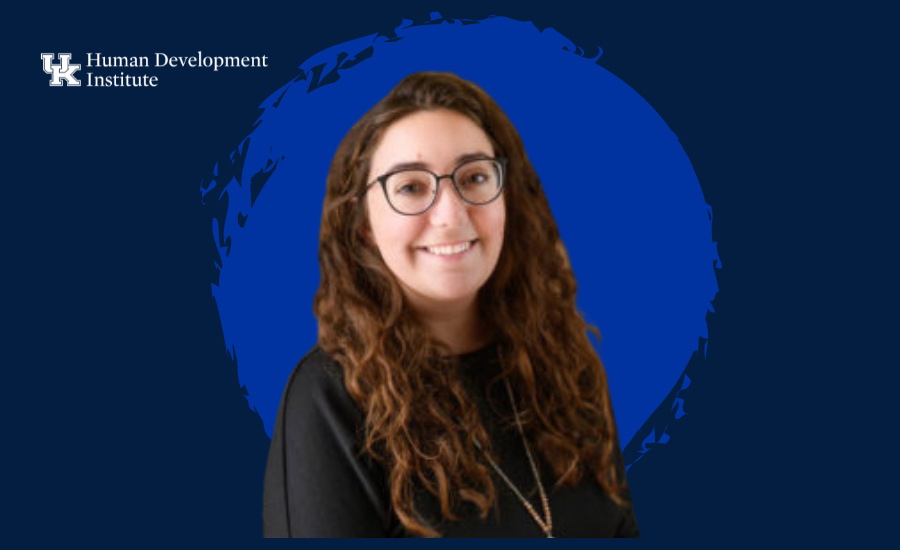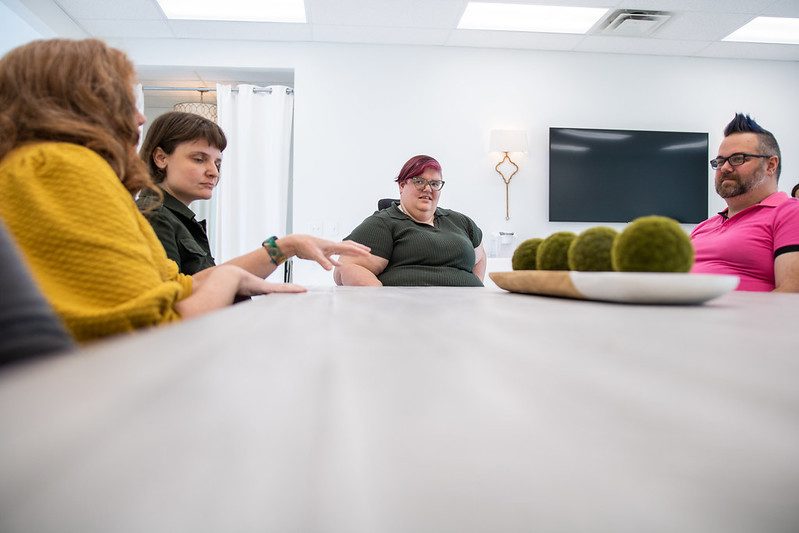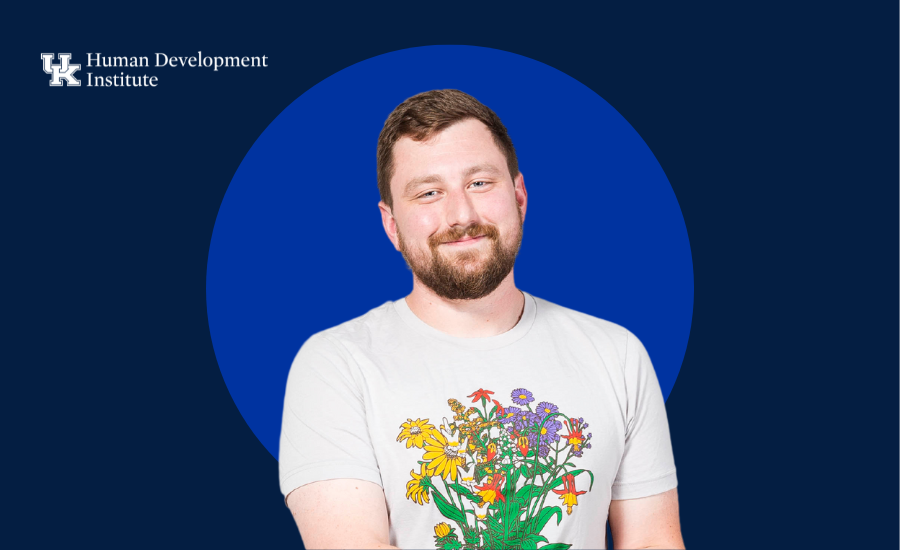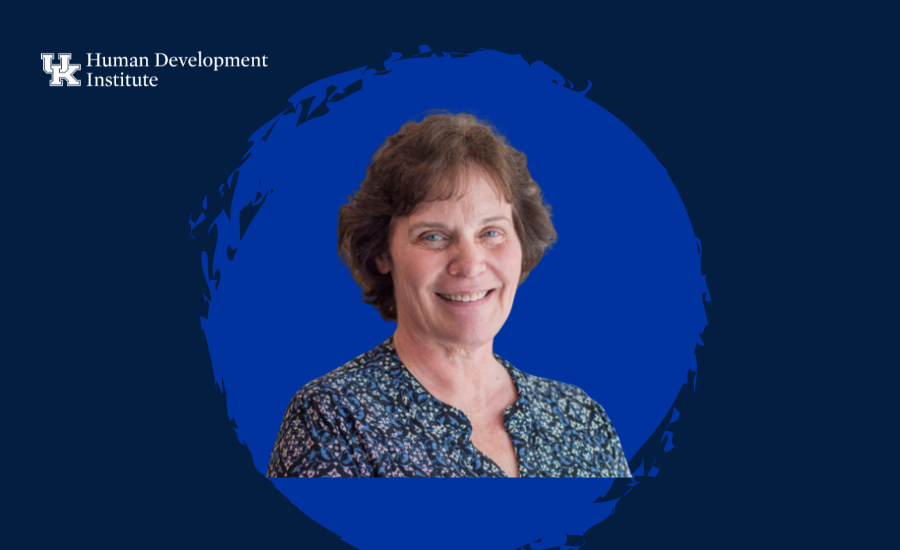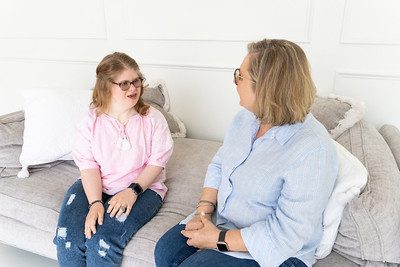HDI’s new training director worked with the organization before, and it had a profound impact on her life. Now, she’ll be working with some of the programs that made that change.
Dr. Rachel Womack is HDI’s new training director, and that means she’ll be leading up many of HDI’s educational programs.
“This includes directing the Kentucky Leadership Education in Neurodevelopmental Disabilities (LEND) program, which is an interdisciplinary leadership training program designed to prepare students to provide support to individuals with developmental disabilities and their families,” Womack said. “I also provide oversight for our Undergraduate Certificate in Universal Design and Graduate Certificate in Developmental Disabilities as well as support for our interns and research assistants. Finally, I help administer our Seminar Series and engage in collaborative research activities across the institute.”
Womack first got involved with HDI as a trainee during her master’s program.
“I had the most wonderful experience, which has shaped not only my career, but my life in so many ways. That program led to a variety of professional and personal disability-centered experiences, influenced my research agenda, and ultimately motivated me to apply for this position at HDI,” she said.
After that, she started working in child welfare and direct disability services and cultivated a diverse résumé within those fields. She’s helped children aging out of the foster care system, managed family reunification programs, worked in supported employment and taught as an adjunct professor at UK’s college of social work.
Now, her new role at HDI allows her to combine multiple passions.
“I recall attending the AUCD Annual Program Meeting as a graduate trainee and sharing with the then Training Director that my goal upon finishing my doctoral degree would be to obtain a position like hers,” she said. “Here I am, years later, in that exact role. I can’t think of a better way to combine my passion for working with students and serving the disability community. I look forward to continuing to grow our training and certificate programs and to forming new collaborative partnerships with other professionals and educators from across the university and beyond.”
And while her passion for disability advocacy has played a huge role in defining her career, it has also intersected with her personal life and many of her own interests. In particular, Womack considers herself an animal lover.
“My wife and I own two horses who are also used part-time as equine assisted therapy horses through local nonprofit Annie’s Answer. We are caregivers for a young adult with a developmental disability, and I enjoy sharing my love of horses with her as well. We also own several dogs and have fostered dozens over the years through local rescues,” she said. “Beyond that, I am a lover of local music, house plants and gardening, and generally spending time outdoors whenever I can.”
Overall, Womack has found that her first impressions of HDI have only been reinforced as she’s become a part of the team.
“I want to play a part in affecting change like that for our students and for the disability community in general. I plan to devote my career to allyship, advocacy, and change-making for folks for disabilities and the people who care about them, and HDI is the perfect place to do that,” she said. “This is an incredible community of brilliant, dedicated researchers, educators, and professionals who have all come together for a common cause. It is a beautiful thing.”
